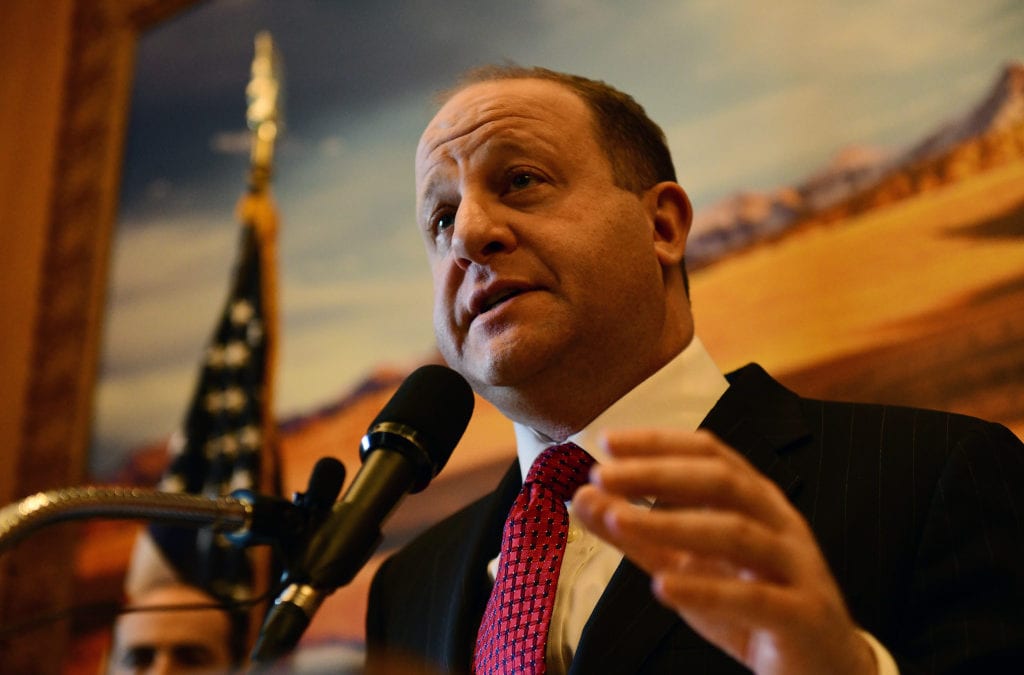Gov. Jared Polis accelerated the state’s fight to slow the spread of the new coronavirus Monday, ordering bars and restaurants to cease dine-in service and for large gathering spaces such as theaters, casinos and gyms to close statewide.
The order is for the next 30 days.
“These establishments can remain open but that’s for take-out, delivery and room service,” Polis said of restaurants.
The order/guidance followed an announcement by Denver Mayor Michael Hancock closing eateries, except for delivery and takeout meals, to slow the spread of the new coronavirus. Since Denver doesn’t allow customers to take alcoholic drinks off-premises, it effectively closed all bars. Polis’ order also would exempt to-go meals.
“There will be a time when we want to celebrate those local small businesses again,” Polis said. “When it’s safe, we want to celebrate in bars and clubs. We want to dine out. That day is not today, it’s not tomorrow, it’s not likely to be next week or the week after.”
Polis said all DMV and Department of Revenue offices in Colorado will be closed until April 18. Renewal of driver’s licenses can still be done online.
Colorado now has 160 positive coronavirus cases, with 20 people hospitalized, Polis said. “We know that there are likely thousands in Colorado” who have the virus, Polis said.
Officials from state and local public health agencies met virtually in a Google Hangout on Monday to hammer out their recommendations for social distancing just three hours before Polis’ news conference. They debated other possible changes, including restricting the size of public gatherings and closing “non-essential” businesses, but deferred those issues for now and decided to rely on guidance from the U.S. Centers for Disease Control and Prevention. Currently, the CDC recommends limiting public gatherings to no more than 50 people, or no more than 10 if the people are high-risk because of advanced age or serious medical conditions.
As of Monday afternoon, 160 people have tested positive for COVID-19, the disease caused by the new virus, in Colorado, said Jill Hunsaker Ryan, executive director of the Colorado Department of Public Health and Environment, More than 1,200 people have been tested statewide.
The public health officials raised two broad concerns Monday: they lack data about how far the virus has truly spread, and the health care system is already beginning to show signs of strain.
State epidemiologist Dr. Rachel Herlihy said about 15% of the people who have tested positive for COVID-19 have needed to be hospitalized. That’s causing problems in mountain communities, where hospitals are running out of protective gear likes face masks and other resources to care for a higher volume of patients, said Dr. Daniel Pastula, a University of Colorado infectious disease specialist who visited some of the harder-hit communities.
“We’re kind of near capacity in the mountains,” Pastula said. “Anything we can do to slow this down that’s reasonable, we should consider.”
Hospitals along the Front Range also are starting to show strain, Pastula said. Representatives from the Colorado Hospital Association and the Colorado Medical Society said their members also are starting to raise concerns about running out of protective equipment and supplies needed for virus testing.
It’s still not clear how widespread the virus may be in Colorado. Hunsaker Ryan said the state is going to send a mobile lab to Telluride, Routt County and perhaps other locations to gather data on whether COVID-19 has reached those communities. The state lab and commercial labs still haven’t been able to keep up with the need for testing, partially due to a lack of supplies, she said.
Even with incomplete data, however, there’s no doubt the state will continue to see an increase in cases, said Eric France, chief medical officer at CDPHE.
“It’s clear from Rachel (Herlihy)’s data that we are at the start of the epidemic in Colorado,” he said.
Staff writer Alex Burness contributed to this report.
This content was originally published here.

